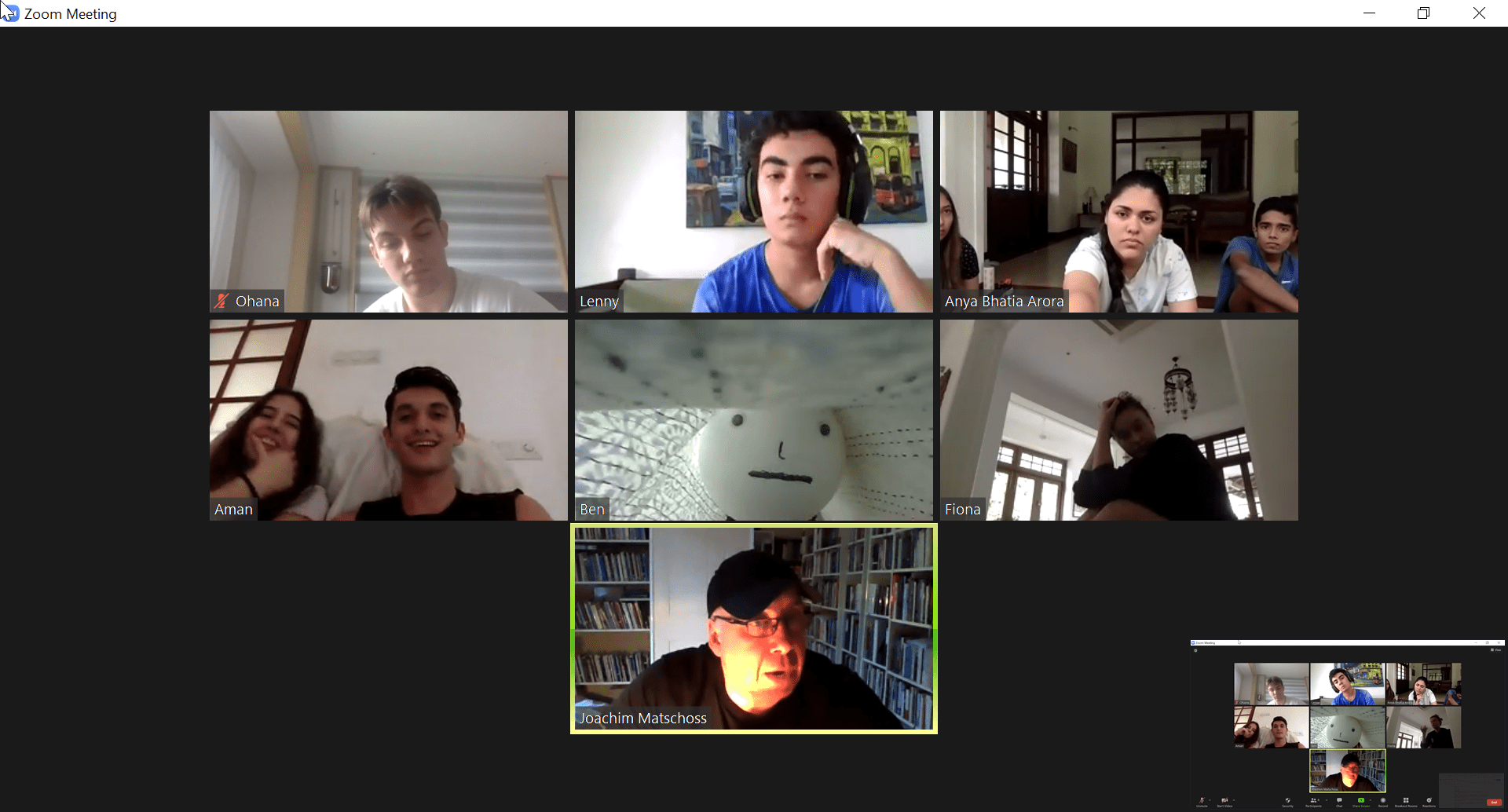On friday, the 4th of December, 2020, our entire theater class engaged in the first ever online ISTA. Amongst the students, we coordinated houses for each day and tried to have the entire class join every day. It lasted roughly 9 hours each day but we had breaks in between to bond and refresh ourselves after intense sessions. The first day we learned about different directors and founders of theater companies and styles. This included different styles of puppet theater, Stanislavski’s theater style and Grotowski’s theater style. On the second day we focused more on realism and being able to express full and accurate emotions respective to our given roles. On the last day we focused on Brecht’s theater style as well as the movement aspect of theater and how it can be impacted by the space we perform in and lastly how minimalism plays a role in theater regarding stages, costumes and actors.
LO2: Demonstrate that challenges have been undertaken, developing new skills in the process
I learned about many different types of theater during ISTA that I have never heard of before. Learning about puppet theater was difficult as I am not familiar with using puppets for theater. I overcame this through the help of my classmates and Joachim as they helped me develop skills. For example, I learned about how you need to be one with the puppet as you need to breath just like the puppet would breath accompanied by slow and meaningful movements. I also learned more about realism and non-naturalism. I was already somewhat knowledgable about these types of theater as we studied them in 9th and 10th grade but I did learn a lot more about how they are used in real life contexts and how to utilize as many of aspects of these types of theater in my performances.
Additionally, I learned about new acting acting methods that helped me to develop my overall skills as an actor. I learned how to better utilize the space given for performances. This happened when Anya and I performed a piece together where we slowly moved back, further and further away from the camera, in order to evoke a mood that we didn’t have much time to speak and that the conversation was going to be one of the last. I also learned that when you are performing, you should not act. Instead you should be a part of the role and become your character so that you understand how they interact with other characters and what their tendencies are.
LO4: Show commitment to and perseverance in CAS experiences
I showed commitment to and perseverance in CAS experiences as it was a 3 day experience which was full of creativity and activity. It required a lot of mental stamina as we had to be engaged throughout the entire experience and we also had to constantly take notes, reflect and give feedback to our peers. This is directly related to CAS experiences as both creativity and activity had major roles in this experience.
LO5: Demonstrate the skills and recognize the benefits of working collaboratively
I demonstrated the skills and recognized the benefits of working collaboratively as the entire experience was group focused a part from very few individual tasks. I was able to learn from my classmates, as we all had different amounts of experience with theater, and I was also able to provide them with some of my knowledge on the subjects present. Furthermore, my supervisors who ran the workshops allowed me to reach my full potential as they gave me constant feedback and provided me with new information that helped me improve as an actor. Lastly, I learned that working collaboratively can help to boost confidence and creates a bond between the members of the class. This allows me to fully express myself and also create more meaningful theater as connections between actors help to improve the authenticity of performances.
Supervisors: Rachel Jackson, Joachim Matschoss & Shane Jones

